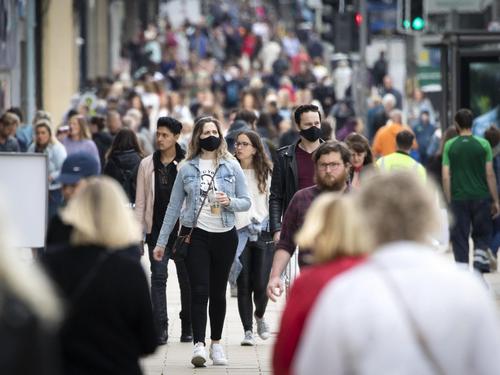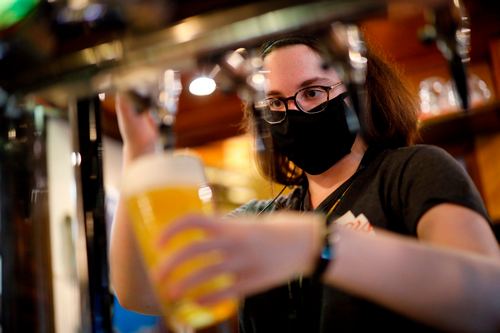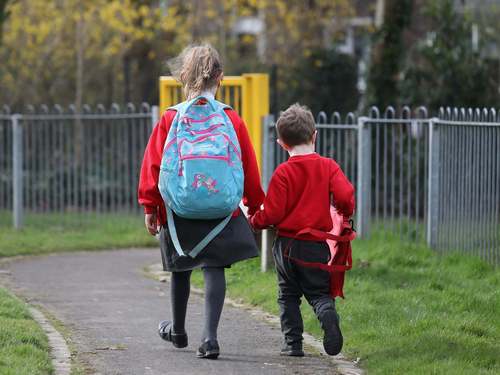The first, an update on an earlier report from Data Evaluation and Learning for Viral Epidemics (DELVE), presents evidence for their effectiveness in reducing transmission and potentially providing protection to the wearer.
Professor Venki Ramakrishnan said the UK is “way behind” many other countries when it comes to face coverings.
Not wearing masks in public should become as socially unacceptable as drink driving or driving without a seatbelt, he added.
“The virus has not been eliminated, so as we lift lockdown and people increasingly interact with each other we need to use every tool we have to reduce the risk of a second wave of infection,” Prof Ramakrishnan said.

“There are no silver bullets but alongside hand washing and physical distancing, we also need everyone to start wearing face coverings, particularly indoors in enclosed public spaces where physical distancing is often not possible.”
He made the remarks as the society published two reports into the wearing of masks.
The second, by the Royal Society’s Science in Emergencies Tasking – Covid-19 group, highlighted how far the UK is lagging behind other countries when it comes to wearing masks.
In April, around 25 per cent of people in the UK were wearing masks, compared to 83.4 per cent in Italy, 65.8 per cent in the US and 63.8 per cent in Spain, according to the Royal Society.
“Wearing a mask did not bother our Italian, French or Spanish neighbours, none of whom were used to wearing one before the pandemic yet now do so routinely,” Prof Ramakrishnan said.
“So just treat it as another item of clothing that is part of the new normal and wear it whenever you cannot socially distance safely. It the right thing to do, and a small price to pay, to help keep infections down and the economy open in the pandemic.”
The Scientific Advisory Group for Emergencies (Sage) has previously said the evidence does not currently support the use of masks to protect the wearer in the general population, but the group has advised that face coverings will reduce transmission if someone is infectious with Covid-19 symptoms.
Meanwhile, the World Health Organisation (WHO) has concluded the use of a medical mask could prevent the spread of droplets from an infected person.
However, it said ”there is currently no evidence that wearing a mask (whether medical or other types) by healthy persons in the wider community setting, including universal community masking, can prevent them from infection with respiratory viruses, including Covid-19”.
Prof Ramakrishnan said many people were ignoring the rule requiring masks on public transport.
He said: “The message has not been clear enough so perhaps people do not really understand the benefits or are not convinced of them. Whatever the reasons, we need to overcome our reservations and wear face coverings whenever we are around others in public.
“It used to be quite normal to have quite a few drinks and drive home, and it also used to be normal to drive without seatbelts. Today both of those would be considered antisocial, and not wearing face coverings in public should be regarded in the same way. If all of us wear one, we protect each other and thereby ourselves, reducing transmission. We lower the chances of future surges and lockdowns which are economically and psychologically disruptive, and we increase the chance of eliminating the virus. Not doing so increases the risk for everyone, from NHS workers to your grandmother.
“Wearing a mask did not bother our Italian, French or Spanish neighbours, none of whom were used to wearing one before the pandemic yet now do so routinely. So just treat it as another item of clothing that is part of the new normal and wear it whenever you cannot socially distance safely. It the right thing to do, and a small price to pay, to help keep infections down and the economy open in the pandemic.”



